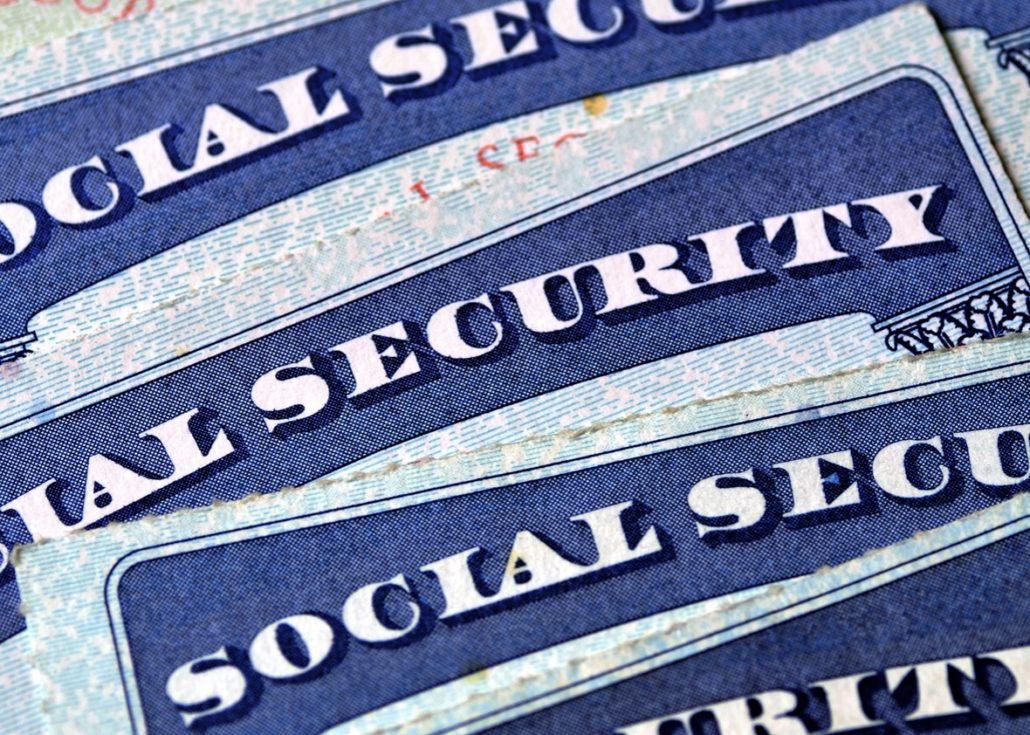PART 2: The Tax and Money Traps Social Security and IRS Have Set For You!

Of course the answer is
Its Now On You


Its Now On You


Unfortunately, in some cases, working while
receiving Social Security benefits can affect your monthly checks.
If you are on disability, earning too much money
could cause you to lose eligibility entirely.
The impact of work on your Social Security
retirement benefits will vary depending on whether
you have reached Full Retirement Age (FRA).
FRA is the age at which you’re entitled to
claim full retirement benefits without a reduction
due to filing early.
Your FRA depends on your birth year,
as the chart below shows. If you’ve already reached it,
you can work as much as you want without affecting
your benefits. If you’re below it, you can do some work,
but some of your benefits checks could be withheld
if you earn too much.
Born In FRA
| 1937 or earlier | 65 |
| 1938 | 65 and 2 months |
| 1939 | 65 and 4 months |
| 1940 | 65 and 6 months |
| 1941 | 65 and 8 months |
| 1942 | 65 and 10 months |
| 1943-1954 | 66 |
| 1955 | 66 and 2 months |
| 1956 | 66 and 4 months |
| 1957 | 66 and 6 months |
| 1958 | 66 and 8 months |
| 1959 | 66 and 10 months |
| 1960 or later | 67 |
The earliest you can claim Social Security is 62,
but if you were born in 1943 or later, the earliest
you’ll reach FRA is 66. This means you could
both work and earn Social Security benefits for
as long as four to five years before you reach the
year you’ll hit FRA. In any of these years, your benefits
will be reduced by $1 for every $2 earned above a set income limit.
The amount you can earn without affecting benefits
changes each year. For 2019, the limit is $17,640.
This is the limit that applies to you if you will not hit
FRA in 2019 but are working and receiving Social
Security benefits at the same time during this year
Reach Out To Me If You Have Questions.
Remember…..


Just south of ‘Sawmill Creek…..
Hi Attorney Kevin Pritchett here
Before I answer the question of
“Will Social Security Run Out?
I have to explain how Social Security is funded and hence how you are taxed for it.
How Much Social Security Tax Will You Pay?
Social Security taxes are paid on amount of all wages earned. In 2018 the maximum income for social security tax is $128,400 and the maximum tax on that amount is 6.2%. So if someone earned the maximum of $128,400 they would pay $7960.
Medicare Tax
There is an additional 1.45% tax to fund Medicare. This tax is uncapped so no matter what your earned income you pay this 1.45%.
If you earn over $200,000 you pay an additional 9% for single filers and heads of households and that 9% is assessed on earned income over $125,000 for married filers filing separately and over $250,000 for married couples filing jointly.
Employers Social Security and Medicare Contributions
In addition to the part employees pay Employers pay 12.4% of employees salary for Social Security and 2.9% for Medicare.
Self Employed Contributions
Self employeds who earn $128,4400, or more
would have to pay the whole $15,921.60.
However, these self employeds can deduct half of the
Social Security taxes paid to reduce their
adjusted gross income.
Projected Social Security Trust Fund Shortfall
Here’s the issue regarding your retirement planning…according to Social Security Administration due to rising costs and diminished revenues, by 2034 there will be projected shortfall in the Social Trust Fund.
As a result either benefits will be reduced ortaxes will be increased…neither situation is good news.
Take Home Message On Social Security
DON’T RELY ON SOCIAL SECURITY ALONE FOR YOUR RETIREMENT NEEDS!!!!
You need to plan your savings so that you receive GUARANTEED, LIFETIME INCOME no matter what SOCIAL SECURITY OR STOCK MARKET DOES!!!
Don’t believe me……just talk to any number of your friends who are still working past 65 because they lost money in the 2008 recession!!!
There are things you can do to protect your retirement income…
Reach Out To Me If You Have Questions.
If you have comments or questions about any of this…send me an email :ironkop@gmailcom
or if reading on my blog or Facebook page leave your questions or comments below.
Remember…..”Things Don’t Get Better With Neglect…..”
Kevin Pritchett, Esq
Law Office of Kevin Pritchett, Inc.
ironkop@gmail.com
www.KevinPLaw.com
312-505-1957


Just south of ‘Sawmill Creek…..
Hi Attorney Kevin Pritchett here
Who Is Eligible For Social Security Spousal Benefits
Let me break it down by category
Non Working Spouse
If you are a non working spouse you can qualify for Social Security under these conditions:
==your partner must qualify for Social Security on
their own working history
==your partner must already be receiving Social Security benefits your you to receive spousal benefits.
==if you are NOT caring for an eligible child under age
18, you must be age 62 to start receiving Social
Security spousal benefits and you must
be your full retirement age (66 or 67 depending on
when you were born) to receive 100%
of eligible Social Security spousal benefits.
Working Spouses
If you qualify for Social Security based on
your own work record, you can only take the higher of either your eligible working
Social Security benefit or your eligible spousal social security benefit…you cannot take both!!
Former Spouses
You can claim spousal benefits from a former spouse
if:
==you are single or widowed==marriage lasted at least 10 years==you are at least 62 years old
Any benefits you obtain from a former spouse will not reduce that spouse’s Social Security benefit.
How Much Is The Spousal Benefit ?
The maximum spousal benefit that current or former
spouses can collect is 50% of the working spouse’s
benefit at their full retirement age, or their
Primary Insurance Amount. PIA.
To receive the 50% benefit, you must wait until your
own full retirement age to file for spousal benefits.
You can claim as early as age 62, but if you do,
your benefit will be reduced by up to 35.
Income Issues
As if all this weren’t confusing enough. On top of it all, you must remember that spousal Social Security benefits can be taxable and can place you in a category where you are penalized or lose benefits altogether.
In upcoming articles I will discuss the entire vexing issue of the Taxation of Social Security Benefits…a topic that boils almost EVERYBODY’S blood!!
Reach Out To Me If You Have Questions.
If you have comments or questions about any of this…send me an email :ironkop@gmailcomor if reading on my blog or Facebook page leave your questions or comments below.
Remember…..”Things Don’t Get Better With Neglect…..”
Kevin Pritchett, Esq
Law Office of Kevin Pritchett,
312-505-1957
ironkop@gmail.com
www.KevinPLaw.com


Just south of ‘Sawmill Creek…..
Hi Attorney Kevin Pritchett here
When Is The Best Age To Take Social Security?
You can collect your Social Security benefit as early as age 62.
However, you only get the full 100% of your Social Security benefit when you wait until your Full Retirement Age, which is somewhere between the ages of 66 and 67.
Full Retirement Agre (FRA)
Quoting from a ‘Motley Fool’ article on the subject:
“ If you apply for your benefits at age 62, then your
monthly check will be much smaller than it would
be if you wait until FRA. The Social Security Administration reduces your monthly benefit payment by a fixed percentage for every month you claim earlier than FRA, and those monthly penalties can add up. For example, a person born in 1960 has a full retirement age of 67; if they claim benefits at age 62, they’d get 30% less per month than they would get otherwise.
From that same article….
“The difference between the amount you could collect
in benefits at age 62 and the amount you could collect
if you wait until age 70 to apply for benefits is significant.
Assuming a full retirement age of 67 and a full retirement
age benefit of $1,000, a person who claims at age 62
would only receive $700 per month, while a person who
claims at age 70 would receive $1,240 per month. In this
scenario, claiming at age 70 results in a monthly check
that’s a whopping 77% bigger than the check they’d
receive at age 62.”
Advantages of Collecting At Age 62 and Breakeven
The advantage of collecting at age 62 is that well…you can collect!!! If you wait to collect and you die, then you lose!! Overall. there is a 40% chance a 60 year old will not live to age 80 based on 2015 data.
Along these same lines…if you collect at age 62 the longer you live, the more total benefits you may collect…the point at which you ‘break even. “The breakeven point is different (with certain assumptions)for age 62, 67 and 70.
Other Factors
Of course since we’re dealing with ‘a government benefit…NOTHING IS SIMPLE!!!
Other considerations:
==spousal benefits
==total income considerations
==what other income/assets you have
If you’re nearing age 62 and expect to collect Social Security it pays to think very very carefully, consider all the possibilities and make a plan BEFORE you get to the critical age….you only get one shot at this!!!
Remember…..
“Things Don’t Get Better With Neglect…..”
Kevin Pritchett, Esq
Law Office of Kevin Pritchett, Inc.
ironkop@gmail.com
www.KevinPLaw.com
312-505-1957
